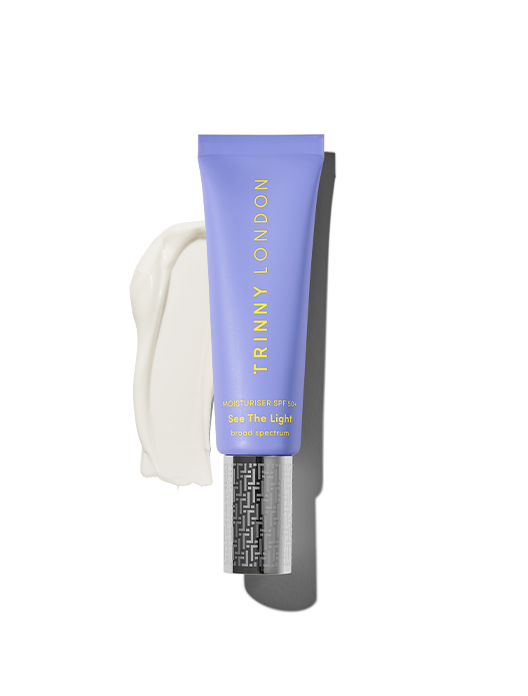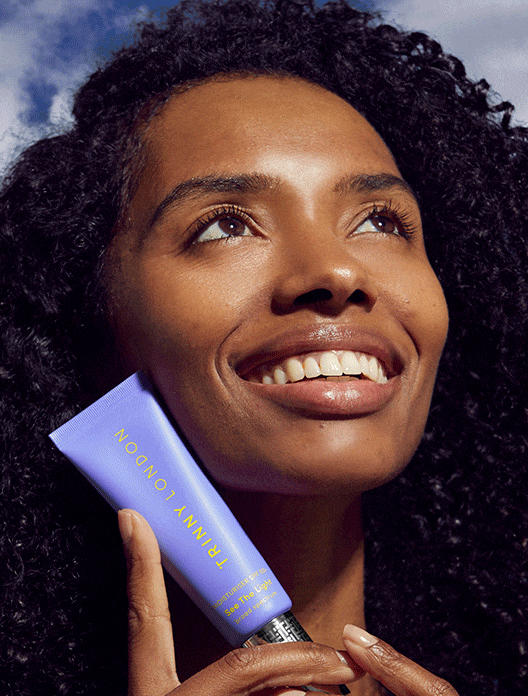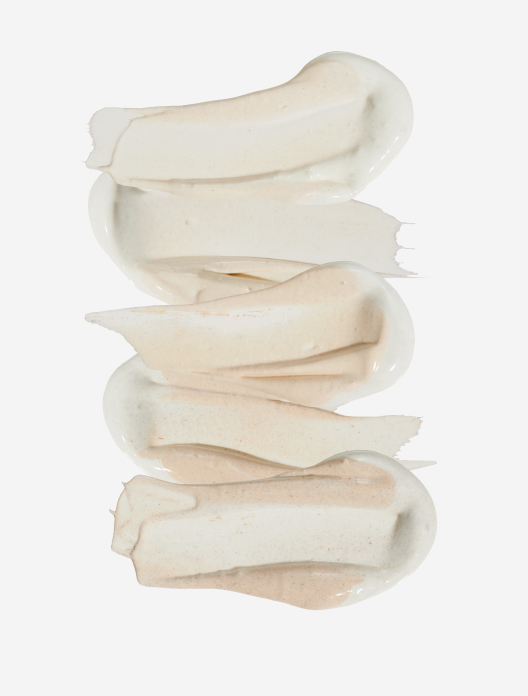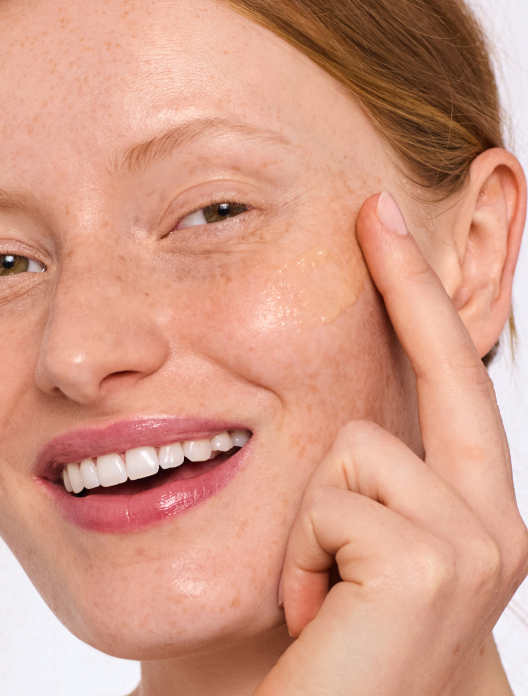

See The Light
Moisturiser with SPF 50 for hydrated, protected skin
Choose 3 free samples with every order

Ok, so you’ve peeled yourself off of the sun lounger long enough to examine your face in the mirror. And the chances are, after a summer spent basking in the sunshine, that it’s not just a healthy glow peering back at you.
Age spots, also commonly known as sun spots, liver spots and dark spots are areas of hyperpigmentation. They are small, just larger than a freckle, flat to the skin and smooth in texture. They can appear on any part of the body but are most commonly found in areas regularly exposed to the sun. For most of us, that’s our face, chest and hands.
The reason age spots become darker and increase in number during the summer months is down to their main cause: UV rays. “During the summer there is more UV around stimulating the melanocytes that cause age spots,” explains consultant dermatologist Dr Justine Hextall.
Working behind the scenes in the deeper layers of our skin are cells called melanocytes. Their role is to create melanin, the pigment that gives our skin its colour and helps to protect against UV. Too much sun exposure can cause these melanocytes to go into overdrive, triggering them to make far more melanin than is needed. Over time, this extra pigment makes its way to the surface of the skin, resulting in an age spot. Once an age spot has set up residency on your face, it can deepen in the sun, just like the rest of your skin. It’s worth noting that in some cases, the opposite can happen, with damaged melanocytes not creating any pigment at all, creating a lighter area of skin.
Anyone can experience age spots, but the older you are, the more likely you are to notice them popping up. This is for two key reasons. The first is that the older you are, the more time you will have spent outdoors, with exercising, al fresco dining and basking on the beach all contributing. The second is due to hormones. Oestrogen is a potent antioxidant, and works as an extra layer of defence to protect skin from UV rays. When we reach the menopause, it depletes considerably – leaving our complexions more vulnerable to hyperpigmentation.
Prevention is always, always better than cure, especially when it comes to hyperpigmentation. Getting rid of age spots is far trickier than avoiding developing them in the first place.
The simplest, and most effective method for preventing age spots? “Wearing a high factor broad sunscreen all year round,” says Dr Hextall. Broad spectrum means it protects from both UVA and UVB rays and longer wavelengths. To work at its best and keep your skin safe, you’ll need to be reapplying your SPF regularly throughout the day – especially if you have been sweating or swimming.
If you usually reserve SPF for summer holidays, you might think of applying sunscreen as greasy, messy and unpleasant – not something you’d want to replicate all year round. But it doesn’t have to be like that. See The Light, our SPF 50+ moisturiser, contains next-generation UV filters in a weightless, luxurious moisturiser formulation, so you’ll actually want to reach for it every day.
If you want to go one step further, you could also consider incorporating an antioxidant into your routine. These powerhouse molecules support your SPF, working to defend skin from free radicals from things like UV, pollution and cigarette smoke. Vitamin C is a potent antioxidant and a great starting point.
Shop the article


Moisturiser with SPF 50 for hydrated, protected skin



 5 shades
5 shades
SPF 30 to protect, perfect and give skin a healthy glow
Choose shade

30% vitamin C serum for visibly brighter, glowing skin, suitable for highly experienced skincare users (not for sensitive skin)
Read, watch and be inspired...